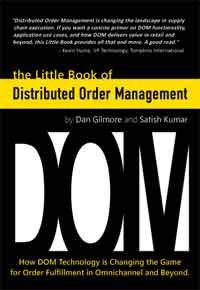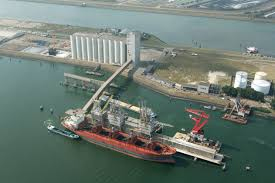eFulfillment and Sustainability - Do Consumers Want Speed or Green?
Getting ready to pack up for the drive to Nashville and CSCMP Edge 2022 on Sunday, this week I offer some relatively brief thoughts on ecommerce and sustainability, based on an interesting new survey.
As a prelude, roughly 10 years ago I spoke at a meeting of the Penn State Supply Chain Leaders Forum, which as with many other universities brings in supply chain managers from forum corporate sponsors twice a year to a small conference, usually with some type of supply chain theme.
| GILMORE SAYS: |
WHAT DO YOU SAY?'
My own view: this data is not backed up by consumer behavior, which (led by Amazon of course) is now used to incredibly fast deliveries.
Send us your
Feedback here
|
The conference I reference had a theme of something about ecommerce, a big deal even then, but I am not sure anyone there would have predicted the changes seen in the decade since.
The relevant anecdote: during a discussion session, one of the PSU faculty asked some questions of attendees about the environmental impact of efulfillment. The universal perspective: while companies were taking action to reduce miles driven, packaging material, etc., for cost and sustainability reasons, no one was remotely thinking about somehow pulling back on ecommerce in the name of the environment.
Not surprising, but worth note.
But will consumers themselves be willing to delay some gratification in the name of the name of the environment?
This week, logistic software provider Descartes Systems released results of a large scale survey of consumers across the globe on this very topic.
39% of respondents said they regularly or always make purchasing decisions based upon the company's or product's environmental impact. Conversely, just 11% never make a purchasing decision based upon the product or company's environmental impact.
The US score was 35% for commonly making a purchase based on environmental impact, versus 37% for Canada.
To be honest, those numbers sounds high to me.
Consumers also indicated that they would buy more grocery (40%) and clothing and footwear (39%) items from companies that demonstrated their supply chains were more sustainable than the competition.
Consumer respondents also indicated they were quite/very interested in more environmentally-friendly delivery methods. In fact, three of the top four answers involved combining orders or having the seller recommend the most sustainable delivery option.
 The top choice of consumers, based on adding the two scores together ("quite" and "very" important) was for combining all orders for a week and delivering then together, with a combined score of 50%. I think it is interesting to note consumers could of course just order weekly on their own rather than needing to hold the olders. The top choice of consumers, based on adding the two scores together ("quite" and "very" important) was for combining all orders for a week and delivering then together, with a combined score of 50%. I think it is interesting to note consumers could of course just order weekly on their own rather than needing to hold the olders.
Next, at 48%, was having the etailer identify the most environmentally friendly fulfillment option.
In a presentation at the virtual Gartner Supply Chain Symposium in 2020, analyst Tom Enright asked this interesting question to etailers: "What if you found out customers care more about the environment than you do?"
Historically, consumers made decisions based on three factors, Enright said: convenience, cost and speed. In the ecommerce era, he added, many have simply equated convenience with fast delivery.
Enright said sustainability it s fast becoming a key fourth factor in how consumers will make buying decisions - and for many will in fact be the most important factor.
Gartner's own survey in 2020 found 58% of consumers were "open" to slower but cheaper delivery options. Descartes survey found 20% of respondents indicated they would pay more for a delivery from an environmentally friendly company. My guess is they won'y pay a whole lot more.
While the Descartes resport presents data showing what I will term decent support for more green deliveries, it also found that consumers rated convenience (40%) much more important than environmental impact (23%). However, there was a large group (37%) that said that convenience and environmental impact were equal. Again, are those 37% really behaving that way?
My own view: this data is not backed up by consumer behavior, which (led by Amazon of course) is now used to incredibly fast deliveries, often same day for obscure products for which same day would seem impossible. Except it isn't.
And while offering options based on CO2 impact sounds like a "no brainer" in theory, running fulfilment at different gears may not be so easy - especially if the consumer expectation is slower delivery equals a lower price. Would welcome your thoughts on this.
In 2020, Enright said retailers need to focus on three things when it comes to ecommerce and green: (1) Offering more sustainable shipping options, generally meaning slower deliveries; (2) Focusing on using recyclable and even reusable packaging; and (3) Embracing "recommerce" - basically the sale of used merchandise, especially in apparel. I am not so bullish on the recommerce.
The Descartes survey concluded by commenting that "The biggest challenge to retailers is to abandon the monolithic approaches to home delivery that don't take advantage of opportunities with more sustainable delivery," adding that "Consumers will expect sustainable delivery options - and this will grow over time."
I think that is true, but I think it's unlikely we will see a pull back on fulfillment speed absent government mandates.
Again, would welcome your thoughts on this.
Any reaction to the topic of ecommerce and sustainability? Let us know your thought at the Feedback section below.
|






 The top choice of consumers, based on adding the two scores together ("quite" and "very" important) was for combining all orders for a week and delivering then together, with a combined score of 50%. I think it is interesting to note consumers could of course just order weekly on their own rather than needing to hold the olders.
The top choice of consumers, based on adding the two scores together ("quite" and "very" important) was for combining all orders for a week and delivering then together, with a combined score of 50%. I think it is interesting to note consumers could of course just order weekly on their own rather than needing to hold the olders.


